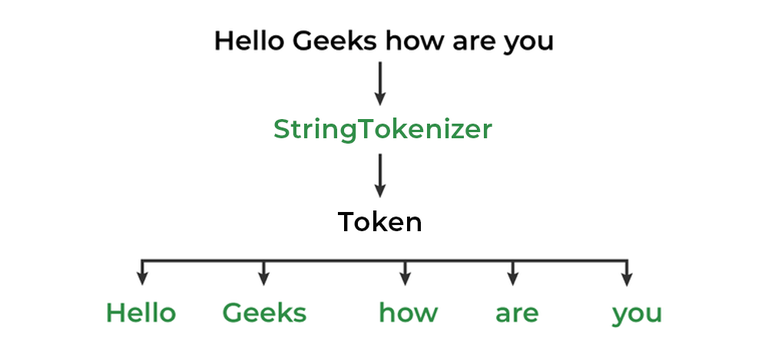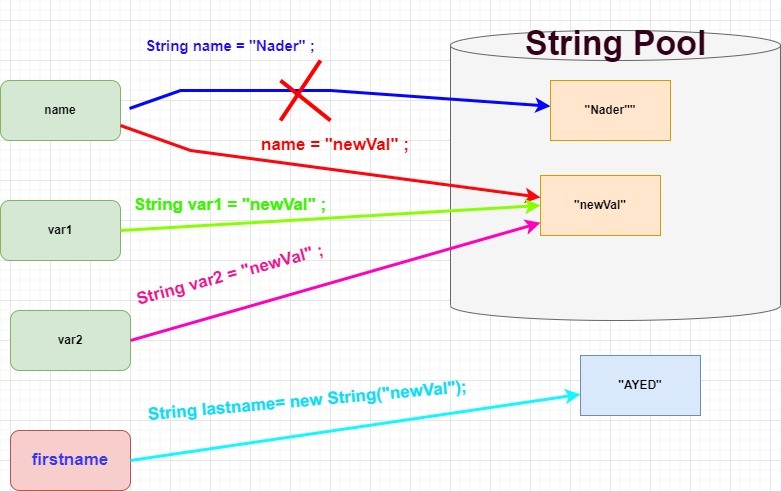What Is Immutable Strings and How It Functions
In the world of programming, recognizing the principle of unalterable strings is extremely important for developing secure and durable applications. Immutable strings refer to strings that can not be altered after they are developed, making sure data stability and predictability within the code. This essential concept plays a critical role in numerous programs languages and uses a distinct approach to handling information. By exploring the complexities of just how immutable strings function, one can reveal a world of benefits and possibilities that can boost the quality and effectiveness of software development.
The Fundamentals of Immutable Strings
Immutable strings, as a basic concept in programming, are character sequences that can not be transformed when they are created. This means that once a string is assigned a value, that value can not be modified. In languages like Python and Java, strings are unalterable things, causing numerous effects in terms of memory administration and data integrity.
Among the crucial benefits of unalterable strings is that they provide a complacency in information control. Since the web content of an immutable string can not be customized, it ensures that the original information continues to be undamaged, minimizing the threat of unintended changes during program execution (Why are strings immutable in Java?). This property likewise simplifies debugging processes, as developers can rely on that when a string is specified, its value will not be accidentally modified
When a new string is created based on an existing one, rather than customizing the initial string, the new value is kept individually. In general, recognizing the essentials of unalterable strings is crucial for understanding programming ideas and maximizing code performance.
Advantages of Immutable Strings
Building upon the safety and security and performance benefits of unalterable strings, their advantages include enhancing code dependability and streamlining concurrent programming tasks. By being immutable, strings can not be modified after production, which gets rid of the risk of unplanned changes in the data they keep. This intrinsic immutability makes sure that as soon as a string is developed, its value remains consistent throughout the program's implementation, lowering the opportunities of bugs brought on by unforeseen modifications.
Additionally, immutable strings contribute to code dependability by making it simpler to reason regarding the state of a program. Considering that strings can not be altered, designers can trust that a string will certainly always hold the same value, simplifying debugging and maintenance efforts. This predictability brings about a lot more stable and reputable codebases.

Implementation in Shows Languages
Within different programming languages, the unification of unalterable strings is a basic facet that affects just how information is handled and controlled within code structures. The execution of unalterable strings differs throughout different programs languages, with each language providing its own systems to support this principle.

In contrast, languages like C and C++ do not have built-in support for unalterable strings. Designers in these languages must manually implement immutability by implementing policies within their code to prevent direct alterations to string objects.
Finest Practices for Functioning With Unalterable Strings
When dealing with unalterable next page strings in shows languages like Java and Python, adhering to ideal practices makes sure efficient and secure data control. Among the key best practices is to utilize StringBuilder or StringBuffer rather of straight controling strings, particularly when managing extensive concatenation operations. These classes provide mutable alternatives for string manipulation, assisting to stay clear of unneeded memory allocations and enhancing efficiency.
Additionally, when functioning with sensitive information such as passwords or API tricks, it is essential to avoid storing them as plain text in unalterable strings. Using safe and secure storage space systems like char varieties or specialized libraries for handling delicate details aids alleviate protection dangers linked with immutable strings.
Real-world Applications and Instances
Exploring useful applications of immutable strings in various markets discloses their significant impact on data integrity and system dependability. In the healthcare market, immutable strings play an essential role in making certain the safety and discretion of client data. By stopping unapproved alterations to sensitive information such as medical documents and prescriptions, unalterable strings assist keep compliance with stringent personal privacy laws like HIPAA.
Financial organizations additionally profit from the immutable nature of strings to improve the safety and security of customer data and transaction documents. Unalterable strings assist stop fraud and unauthorized modifications to financial details, offering a durable defense against cyber risks and guaranteeing the depend on and confidence of customers.

Verdict
Best techniques for functioning with immutable find this strings consist of staying clear of straight adjustments and using approaches that return new string objects. Real-world applications of unalterable strings consist of data encryption, caching, and string adjustment jobs.
Unalterable strings refer to strings that can not be changed after they are developed, guaranteeing information integrity and predictability within the code. When a new string is developed based on an existing one, instead than customizing the initial string, the new worth is kept individually.In languages like Java and Python, strings pop over to this site are immutable by default, meaning that once a string item is produced, its worth can not be changed - Why are strings immutable in Java?. Best techniques for working with unalterable strings consist of staying clear of direct modifications and making use of methods that return brand-new string things. Real-world applications of immutable strings include data encryption, caching, and string control jobs